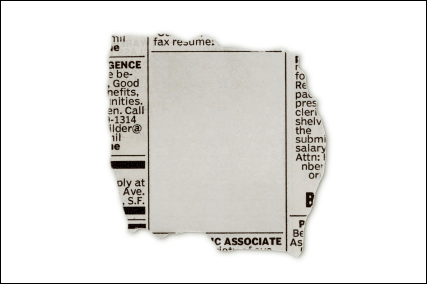
Image Credit: nublue
For a handout, download the PDF document outlining this assignment.
For our second major writing assignment we will be producing a class publication.
Everyone will contribute to the publication, albeit in some different ways (see below). I propose that we "write" a publication dealing, in the broadest sense, with "Austin." You all should choose subject to follow and write about that say something about what makes Austin different from other cities. The assignment is really that broad. And we will have a very boring publication if everyone writes an expose of a frat party. This will require you to get off campus and engage with our broader community. Keep in mind that the New Journalism often approached culture from the fringes—you might want to do the same, but whatever you do, stay safe. If you have a difficult time coming up with ideas, I'll happily help you brainstorm.
Under no circumstance should you put yourself in a dangerous or even uncomfortable position to get your story. There are plenty of great stories available without having to take such risks. Also, your grade will be low indeed if you indulge in some form of reportage that is simply about, say, getting high with your friends. The New Journalism is hip and cool, but don't let that compel you to act or write in ways that you don't want to be recorded for posterity. This, despite the cool of the New Journalism, is still a formal assignment, and should be treated as such.
We will talk about journalistic ethics and your responsibilities to yourselves, your subjects and your readers throughout this project, and I strongly suggest that you take notes when we have those conversations.
In terms of composition, I want us to expand on the typical notion of writing. You could choose to write a traditional essay for this project, but I strongly encourage you to experiment with other forms of compositions: videos, radio essays (a la This American Life), multimedia presentations, flash presentations, and photo essays are all viable options for this project. If you would like to attempt a composition in a medium you have not worked in before, Nate will be happy to direct you to one of the many campus resources available, such as DMS, to help you with your project.
Journalists—Journalists will write stories relevant to the topic of the publication. They will submit polished, well documented stories to the editors. Stories should be between 2000 and 5000 words. The editors may reduce the text as it appears in the final publication, or they may ask a journalist to add or flesh out parts of their story.
Commentators—Once the journalists' stories have been selected the commentators will decide upon a strategy for making sense of what the stories mean. They will each "write" a critical essay commenting on one or more stories and the stories' significance. They will try to tell us what the reporting means.
Editors—Three editors will be selected from applicants to review the stories submitted by the journalists. They will determine which stories to feature, as well as making constructive suggestions for how the stories might be improved before final publication. In consultation with the class as a whole, individual contributors and Nate, they will set deadlines for story submission and final publication. Editors will also "write" introductory and concluding material, as necessary.
Designer—The designer will be responsible for the layout and final publication of our work. They will need to be familiar with web-based and traditional publishing techniques. They will be responsible for bringing all the various media together in one "location" and forming them into a coherent "publication."
Grades—Everyone will get two grades for this assignment. Nate will grade the final publication, for which everyone will receive the same grade. This grade will count as 10% of students' final grades. Additionally, Nate will grade students' compositions and contributions to the final publication, grading the publication in their prior-to-editing state. This grade will count as 20% of students' final grades.
Deadlines—by 10/10 you should email Nate with two things: your preferred position on the class publication (journalist, editor, commentator, designer) and your qualifications for that position. The "default" position will be journalist. Also, everyone, regardless of their preferred position, should email Nate a brief (no more than 300 words) description of what you *think* you would like to "write" about for the publication, assuming that you are a journalist. On 10/13 Nate will inform you of your position, at which point he will also discuss your story ideas with you individually.
All additional deadlines for submissions and publication to be determined by the class as a whole.
As always, email Nate if you have any questions about any component of this project.
Recent comments
2 years 29 weeks ago
2 years 44 weeks ago
2 years 44 weeks ago
2 years 50 weeks ago
3 years 4 weeks ago
3 years 4 weeks ago
3 years 4 weeks ago
3 years 6 weeks ago
3 years 6 weeks ago
3 years 6 weeks ago